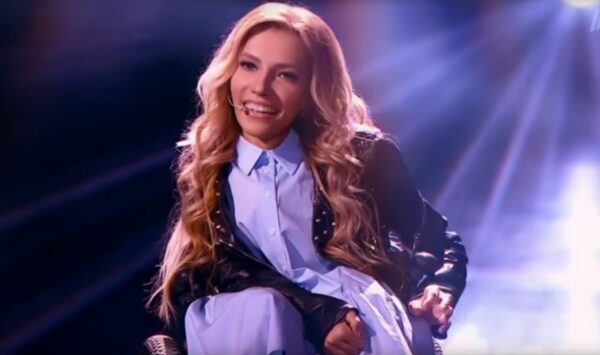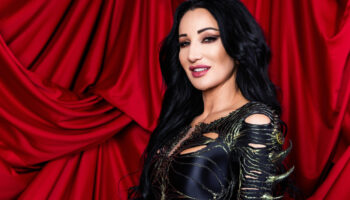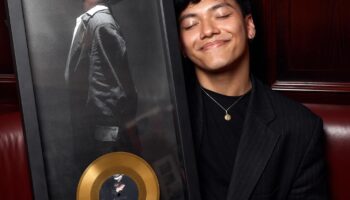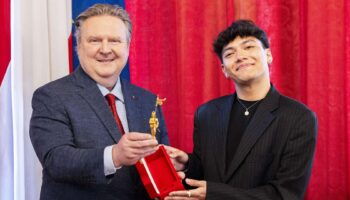It was announced recently that Julia Samoilova is set to represent her country at the 2017 Eurovision Song Contest, this May in Kyiv, with the song Flame is burning. Although, her attendance to the competition is in jeopardy.
Who’s Julia Samoilova
27 year old singer and songwriter, Julia Samoilova is Russia’s 2017 Eurovision representative with the song Flame is burning. The singer is very well known in Russia after her participation at the Russian X-Factor back in 2013 as well as her performance at the opening ceremony of the 2014 Winter Paralympics in Sochi, Russia.
Last October, it was made public that Ukraine’s SBU security service has blacklisted around 140 Russian artists. Although Samoilova is not in the list, she might not be able to attend the competition in Kyiv due to a performance she gave in Crimea, back in 2015. The singer has confirmed herself that she sang in Crimea. This action itself, is not allowed by the Ukrainian laws.
An SBU spokesperson, Olena Gitlyanska, poster on her Facebook profile that SBU will study the question and take a balanced decision on her entry into Ukraine.
On the other hand, Kremlin’s spokesperson Dmitry Peskov, released a statement to the Russian news agency TASS, denying that Samoilova is a selection from Russia to trigger provocation.
Undoubtedly, we would like to avoid politicizing the Eurovision contest. […] We believe it’s absolutely unacceptable as far as the development of this international contest is concerned.
EBU’s reaction
Jon Ola Sand, during a press conference, he stated:
We fully understand and respect the laws of Ukraine, but the European broadcasting Union (EBU) has no objections to the Russian delegation and not see any violations on their part. We want all countries to participate, but the decision is of the Ukrainian government, and we will respect it.
Russia and Ukraine in political conflict
In 2014, right after the annexation of the region of Crimea, the two countries have been locked in a political conflict. Back in that year, the crowd booed the 17 yo Russian competitors Tolmachevy Sisters. The turmoil caused by the annexation and the Eurovision Song Contest taking place few weeks later, was even commented by HBO’s Last Week Tonight, John Oliver.
Politics in the Eurovision Song Contest
Despite everyone’s stating that the Eurovision Song Contest is a politics-free international competition, there is always a subconscious feeling that there actually is. Last year, the winning song of Jamala, 1944 was about Joseph Stalin’s mass deportation of the Crimean Tatars during WWII. Furthermore, the Armenian representative, Iveta Mukuchyan was seen waving the flag of Nagorno-Karabakh, a landlocked region in the South Caucasus, during the first semi-final of the contest.




